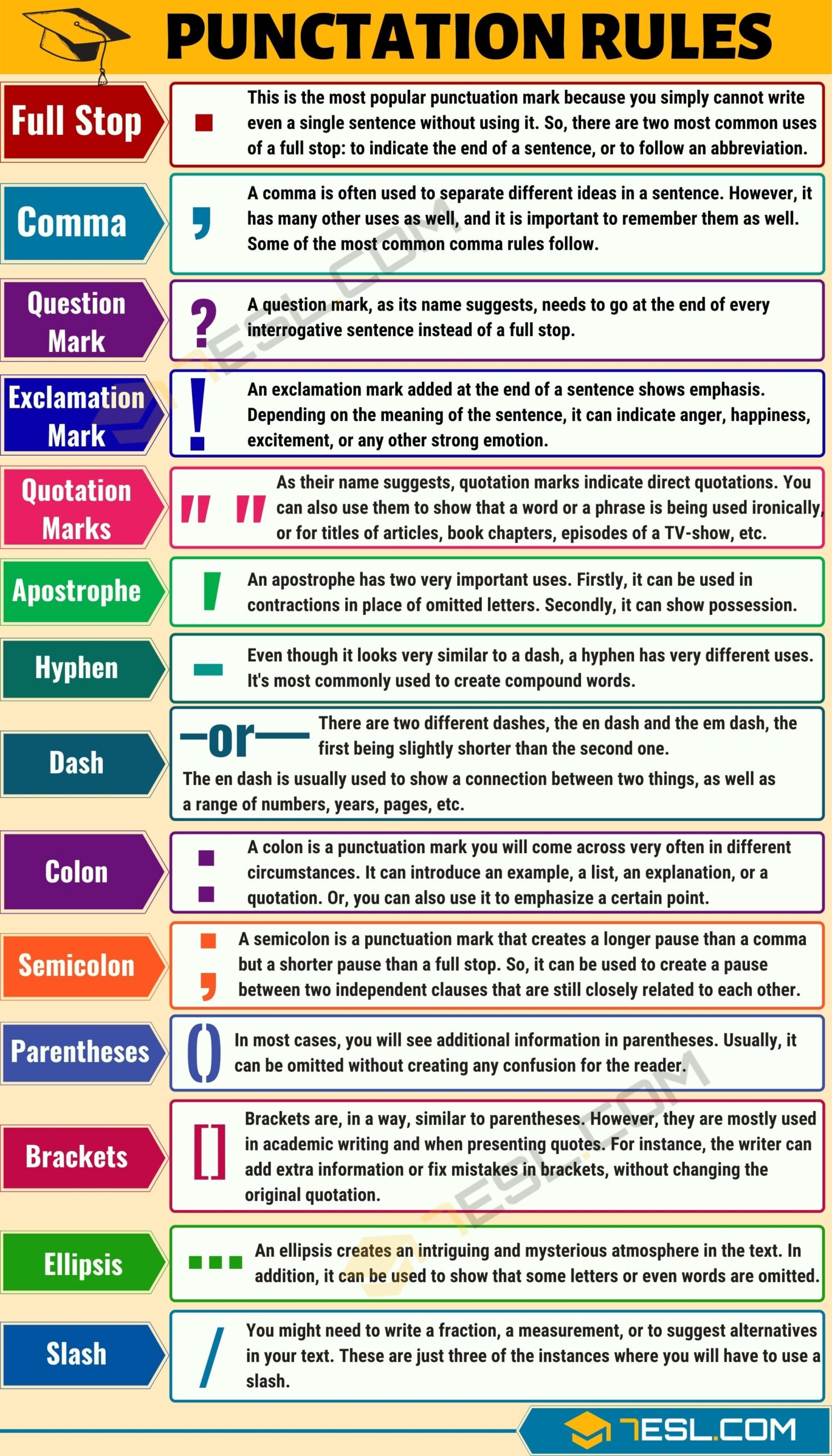Punctuation rules are essential in writing as they help convey meaning, clarity, and tone in a sentence. Proper punctuation can make a significant difference in the understanding of a message, while incorrect punctuation can lead to confusion or misinterpretation. Therefore, it is crucial to understand and follow punctuation rules to effectively communicate through writing.
1. Periods (.) – used at the end of a sentence to indicate a full stop.
2. Commas (,) – used to separate items in a list, join independent clauses, and set off introductory phrases.
3. Apostrophes (‘) – used to indicate possession or contraction.
4. Quotation marks (” “) – used to indicate direct speech or to enclose the titles of books, articles, or songs.
5. Colons (:) – used to introduce a list or an explanation.
Proper punctuation enhances the overall quality of writing by making it easier to read and understand. It helps to structure sentences and paragraphs, giving them coherence and flow. Punctuation also aids in expressing the writer’s tone and emphasis, allowing for a more effective communication of ideas.
Furthermore, mastering punctuation rules can improve one’s writing skills and contribute to a professional and polished writing style. It shows attention to detail and a commitment to clear and effective communication. Whether in academic papers, business emails, or creative writing, proper punctuation is essential for creating a positive impression on the reader.
In conclusion, punctuation rules play a critical role in writing by providing structure, clarity, and coherence to a text. By following these rules, writers can effectively convey their message and engage their audience. Understanding and applying proper punctuation is a skill that can enhance the overall quality of writing and help writers achieve their communication goals.
